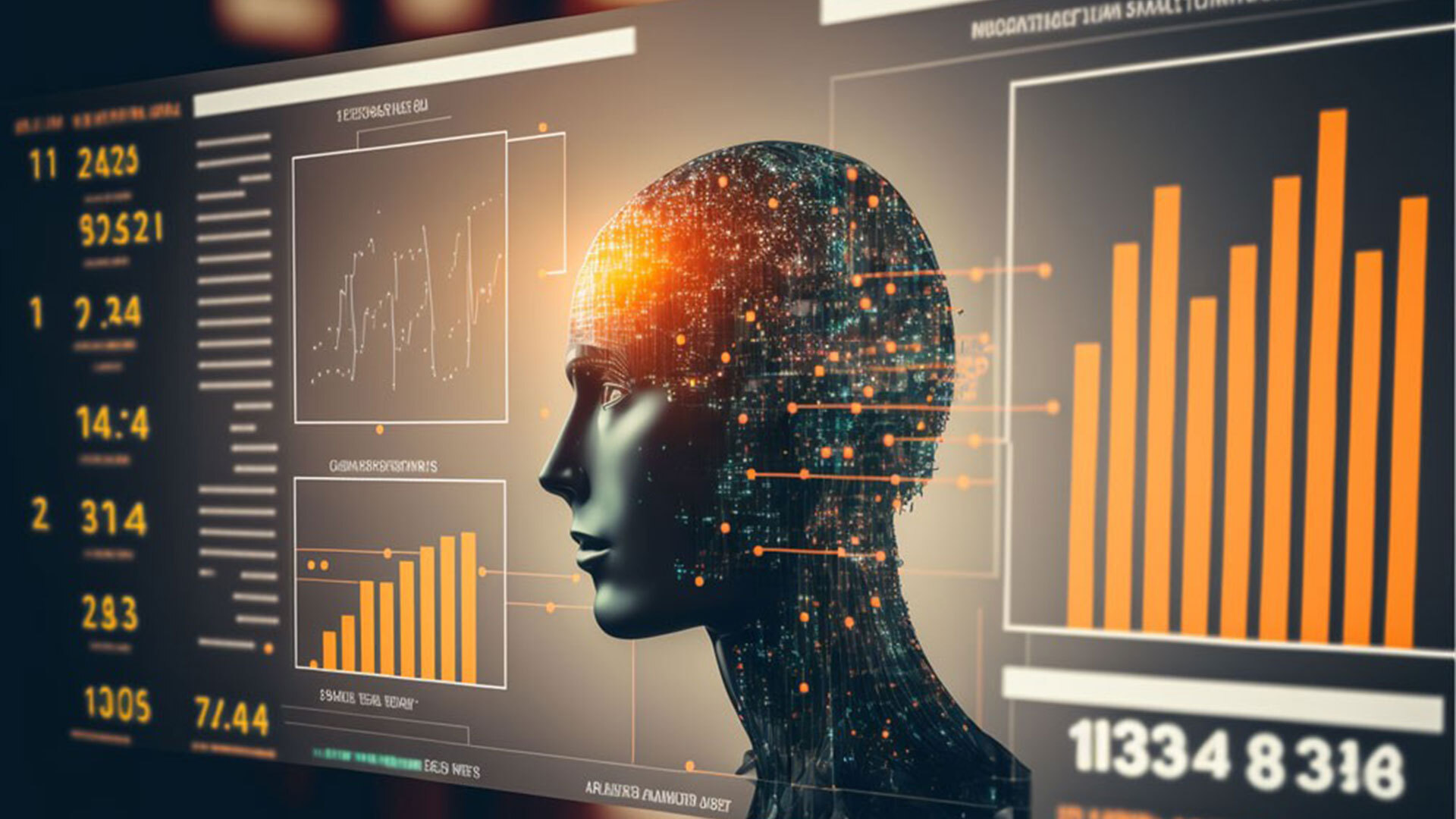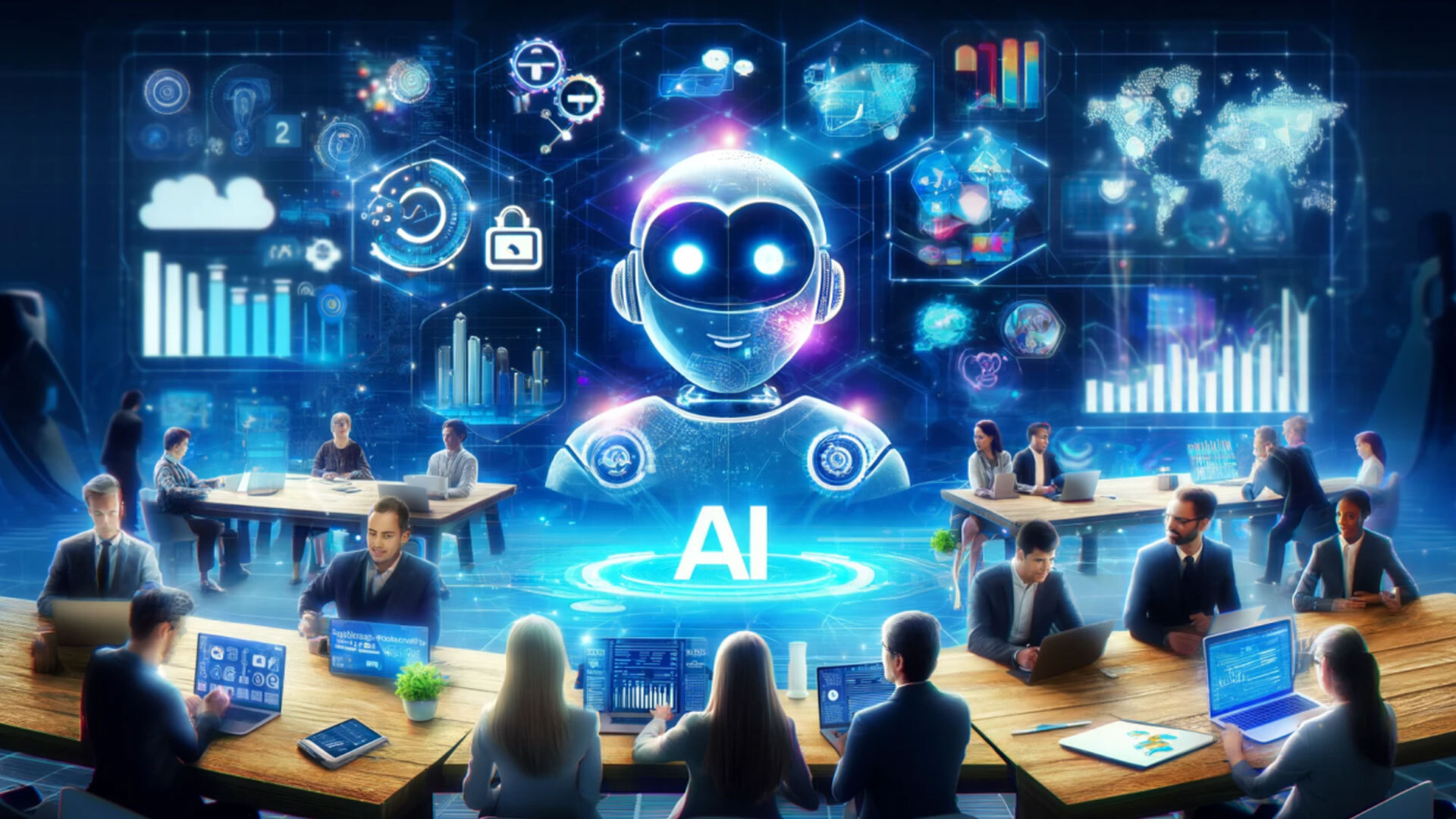
AI in Advertising: Key Trends Marketers Can’t Ignore
About Advertising
The advertising landscape is undergoing a seismic shift. Consumers are bombarded with messages across an ever-expanding digital frontier, demanding a more personalized and relevant experience. Enter artificial intelligence (AI), poised to revolutionize the way brands connect with audiences. This article delves into the key AI trends in advertising that marketers can't afford to ignore, paving the path for success in the age of intelligent marketing.
As we step into a new era of marketing, the role of artificial intelligence (AI) in advertising is becoming increasingly pivotal. The convergence of technology and creativity is reshaping how brands connect with consumers. Marketers who harness the potential of AI-driven advertising strategies will not only gain a competitive edge but also enhance customer engagement.
Refer to our interesting blog, AI in Marketing: The Ultimate Guide to Customer Segmentation and learn how AI in marketing operations allows brands to stay competitive in today's market and deliver exceptional personalized experiences to their customers.
Let’s explore the key AI marketing trends that marketers cannot afford to overlook.
The Rise of AI in Advertising
The integration of AI in advertising has transformed traditional methods, offering insights and efficiencies that were previously unimaginable. AI encompasses a range of technologies that mimic human cognitive functions, including learning, problem-solving, and decision-making. In advertising, AI acts as a powerful tool for analyzing vast amounts of data, identifying customer patterns, and delivering hyper-personalized ad experiences. Companies using AI in advertising benefit from advanced analytics, personalization, and automation, making campaigns more effective and cost-efficient. As we look ahead, AI advertising trends in 2025 point toward even greater innovation, with predictive analytics and hyper-personalization becoming the norm.
This translates into increased engagement, brand loyalty, and ultimately, a significant boost to your marketing ROI.
Key AI Marketing Trends

1. AI-driven Personalization
Gone are the days of generic ad campaigns. Marketers are now leveraging AI to personalize ad content, messaging, and offers based on individual user profiles and behavior. This includes factors like demographics, purchase history, website interactions, and even social media activity.
By leveraging machine learning in advertising, brands can analyze vast amounts of consumer data to understand preferences and behaviors. This enables them to create targeted ad campaigns that resonate with individual users.
Example: Netflix utilizes AI algorithms to recommend shows based on viewing history, providing a personalized experience that keeps users engaged.
2. AI Automation
The marketing landscape is a mesh of complex tasks. AI comes to the rescue by automating repetitive and time-consuming processes, freeing up valuable resources for strategic thinking.
This includes tasks like ad bidding, budget allocation, campaign performance monitoring, and even creative content generation. By automating these functions, AI empowers marketers to focus on crafting compelling narratives and building deeper brand relationships.
To find out the power of AI Automation tools, explore our blog post, The Rise of AI Automation Tools: Revolutionizing Industries!
Example: Platforms like Google Ads utilize AI for automated bidding strategies. AI analyzes market trends and user behavior to adjust bids in real-time, maximizing campaign reach and budget efficiency.
3. AI Content Creation in Advertising
AI content creation is revolutionizing the way brands develop marketing materials. The content marketing landscape is no stranger to AI's influence. While AI cannot yet replace human creativity entirely, it acts as a powerful tool for content creation and optimization. Tools powered by generative AI can produce high-quality content quickly and efficiently. From ad copy headlines, personalized product descriptions, basic video content, to social media posts, AI tools for marketers can help streamline the creative process.
Example: Brands like Coca-Cola and Unilever are already experimenting with AI-generated content, showcasing its potential to enhance creativity while reducing time and resources.
4. AI-powered Chatbots and Virtual Assistants
Customer service is undergoing a digital makeover in the AI era. AI-powered chatbots and virtual assistants are now seamlessly integrated into brand communication strategies. This 24/7 accessibility fosters customer satisfaction and builds brand trust. These intelligent chatbots can answer user queries, provide product recommendations, and even handle simple customer service requests, all in real-time and around the clock.
Example: Airlines are increasingly using AI-powered chatbots to answer passenger questions about flight schedules, baggage allowance, and change requests. This not only improves customer experience but also frees up human agents to address complex issues.
5. The Power of Predictive Analytics
Imagine knowing what your customer wants before they even know it themselves! That's the magic of AI in advertising. Predictive analytics is another area where AI in digital marketing shines. By analyzing past consumer behavior, AI can forecast future actions, enabling marketers to optimize their strategies.
Predictive analytics leverage machine learning algorithms to identify customer behavior patterns and predict future needs. This allows brands to proactively target users with relevant content and offers, driving conversions and sales.
Example: An e-commerce platform might utilize AI to recommend additional products based on a user's past purchases. This personalized approach increases the likelihood of further engagement and sales.
6. Enhanced Customer Insights
AI’s ability to analyze data in real-time provides marketers with deeper customer insights. Through AI-driven advertising strategies, brands can monitor and evaluate consumer interactions across multiple channels. This continuous feedback loop helps refine marketing approaches and tailor campaigns to better meet customer expectations.
Example: Amazon uses AI to analyze purchase patterns, enabling them to send personalized product recommendations.
7. Voice and Visual Search Optimization
As voice-activated devices and visual search technology gain traction, the need for AI in advertising becomes more pronounced.
Marketers must optimize their content for voice searches and visual platforms to remain relevant. AI tools help analyze trends in voice and visual searches, allowing brands to adjust their SEO strategies accordingly.
Example: Google’s AI algorithms prioritize voice search queries differently, which requires brands to adapt their advertising strategies to capture this growing audience.
8. AI in Advertising Agencies
Advertising agencies are increasingly adopting AI to enhance their offerings. By implementing AI tools for marketers, agencies can provide better insights and more efficient campaign management. This not only improves client outcomes but also allows agencies to allocate resources more effectively. Firms that integrate AI into their operations are likely to stay ahead of the competition, adapting quickly to changing market demands.
The Future of AI in Advertising: 2025 and Beyond
As AI technology continues to evolve, we can expect even more transformative trends in the future of advertising. Brands that embrace these trends will be better positioned to meet the evolving expectations of consumers.
Here are a few exciting possibilities:-
- The Rise of Multimodal AI: AI's ability to process and analyze different forms of data – text, voice, images, and video will create a more holistic understanding of customer behavior. This will enable the creation of truly immersive and personalized ad experiences that seamlessly blend across various channels.
- Ethical Considerations Take Center Stage: Transparency and user privacy will remain paramount concerns as AI advertising becomes more sophisticated. Marketers will need to ensure that AI is deployed ethically and responsibly, building trust with customers while delivering targeted advertising experiences.
- The Human-AI Partnership: The future lies in a collaborative approach where AI complements human creativity and expertise. AI can handle data-driven tasks, while humans provide strategic direction and creative flair. This partnership will drive innovation and deliver exceptional advertising outcomes.
Benefits of AI in Advertising
The benefits of AI in advertising are manifold. By leveraging AI-driven advertising strategies, brands can achieve:
- Increased Efficiency: Automation of repetitive tasks allows marketers to focus on strategy and creativity.
- Better Targeting: Enhanced data analysis ensures that advertisements reach the most relevant audiences.
- Improved ROI: Data-driven insights lead to more effective campaigns and higher conversion rates.
AI Advertising Examples
Several companies are leading the charge in AI advertising. For instance:-
- Starbucks uses AI to optimize its marketing campaigns based on customer preferences.
- Similarly, Spotify employs machine learning algorithms to create personalized playlists and targeted ads, enhancing user engagement.
Final Thought
AI is a reality shaping the advertising landscape and it is no longer a futuristic concept. By embracing the key trends outlined in this article, marketers can unlock the full potential of AI and gain a competitive edge. From personalized experiences to streamlined workflows, AI empowers brands to connect with audiences in meaningful ways and drive measurable results. As AI continues to evolve, it's essential for marketers to stay informed, experiment with new technologies, and adapt their strategies to thrive in the age of intelligent marketing.
As we approach 2025, those who harness the power of AI will not only enhance their marketing efforts but also foster stronger connections with consumers. The time to embrace AI in advertising is now, and the potential rewards are vast.
AI in advertising is a game-changer, and DGAS by Amit Jadhav equips marketers to win. While not offering specific courses, DGAS serves as a springboard. Their resources demystify AI concepts like machine learning, preparing you for the future. They showcase real-world applications in advertising, sparking your imagination. This knowledge empowers you to explore further: discover digital marketing video courses, online programs like the Digital Growth Accelerator System (DGAS), or certifications tailored for entrepreneurs. By combining the foundation from DGAS with dedicated learning, you will become an AI-powered marketing force!
- Amit Jadhav
www.amitjadhav.com
